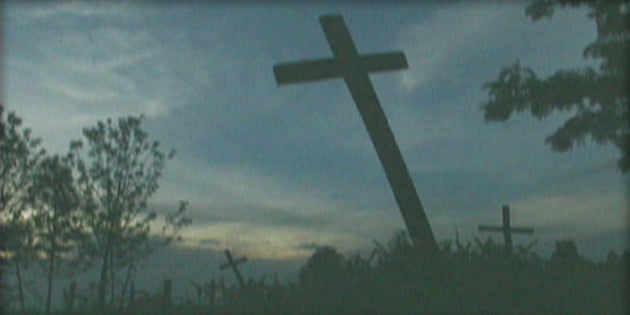Twenty years ago an event happened that propelled a small central African country into global consciousness in an unimaginably horrific manner. The College of Charleston African studies program will host a four-part film series documenting three months of violence in Rwanda. Because of the necessarily graphic representations of violence in the films, these films are not suitable for children.
 All films will be shown at 4:30 p.m. in Addlestone Library, room 227 with a question and answer session following the screening.
All films will be shown at 4:30 p.m. in Addlestone Library, room 227 with a question and answer session following the screening.
April 8, 2014: “Ghosts of Rwanda” (2004) documentary
April 9, 2014: “Shake Hands with the Devil” (2004) documentary
April 15, 2014: “Sometimes in April” (2005) feature film
April 16, 2014: “Kinyarwanda” (2011) feature film
The first two films examine the lethal convergence of social, political, cultural, and diplomatic factors that enabled the genocide to occur. While “Ghosts of Rwanda” attempts a comprehensive account, “Shake Hands with the Devil” focuses on the specific case of Romeo Dallaire, the Canadian commander of the small UN force already in Rwanda in April 1994, and the failure of the UN to give him the support he requested that might have allowed him to prevent the genocide.
 “Sometimes in April” uses the story of two brothers, one a journalist, the other a captain in the Rwandan army, to individualize the mass suffering that came about during the genocide. “Kinyarwanda” addresses a little-known aspect of the genocide: that the Mufti of Rwanda, the most respected Muslim leader in the country, issued a fatwa forbidding Muslims from participating in the killing, thus making mosques places of refuge where Muslims and Christians, Hutus and Tutsis could expect sanctuary.
“Sometimes in April” uses the story of two brothers, one a journalist, the other a captain in the Rwandan army, to individualize the mass suffering that came about during the genocide. “Kinyarwanda” addresses a little-known aspect of the genocide: that the Mufti of Rwanda, the most respected Muslim leader in the country, issued a fatwa forbidding Muslims from participating in the killing, thus making mosques places of refuge where Muslims and Christians, Hutus and Tutsis could expect sanctuary.
“Since 1994, the people of Rwanda, and the world community alike, have struggled to come to terms with the violence—attempting to analyze and explain its immediate and underlying causes and struggling to find ways to deal with the aftermath,” explains Simon Lewis, English professor and director of the African Studies program. “We hope this four-film series will allow viewers to learn about the genocide from a variety of perspectives.”
For more information, contact Lauren Saulino at 843.953.4884.




